Find Help
More Items From Ergsy search
-

What is vasculitic neuropathy?
Relevance: 100%
-
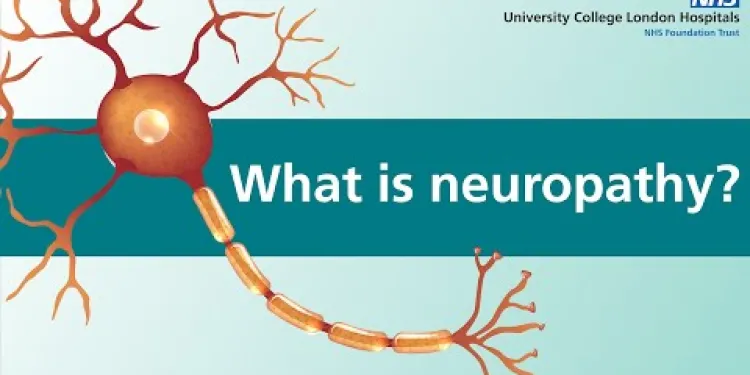
What is a neuropathy?
Relevance: 48%
-
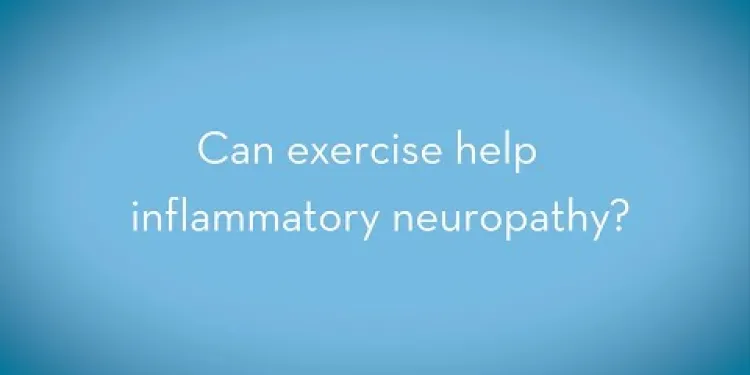
Exercise in patients with a neuropathy
Relevance: 43%
-

What complications are associated with Type 2 Diabetes?
Relevance: 15%
-
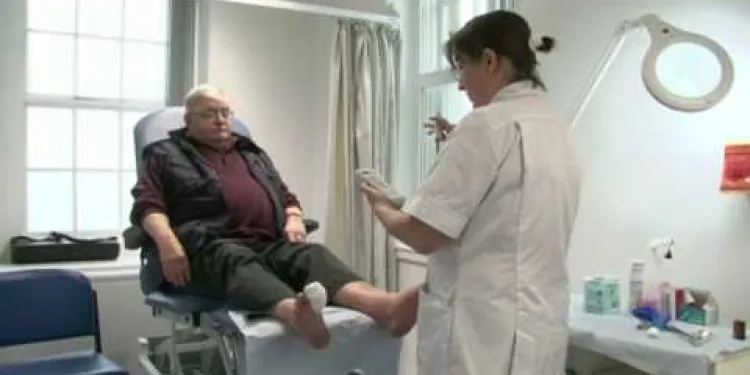
Diabetic Foot Conditions Podiatrist
Relevance: 13%
-

Is there a risk of permanent nerve damage?
Relevance: 11%
-

What are the side effects of bowel cancer treatment?
Relevance: 11%
-

Are heart attack symptoms different for people with diabetes?
Relevance: 8%
-
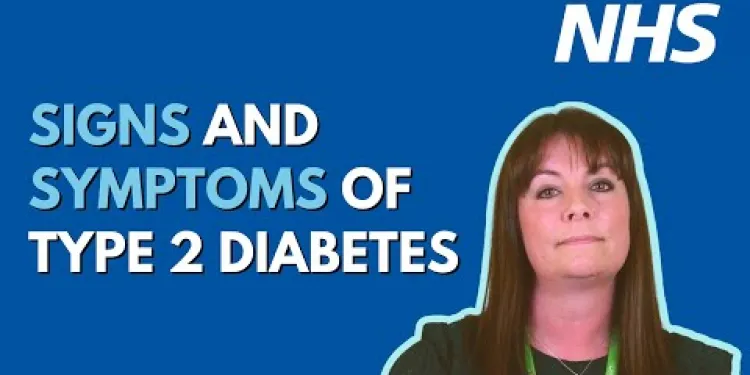
Type 2 diabetes - common signs and symptoms UHL NHS Trust
Relevance: 6%
-
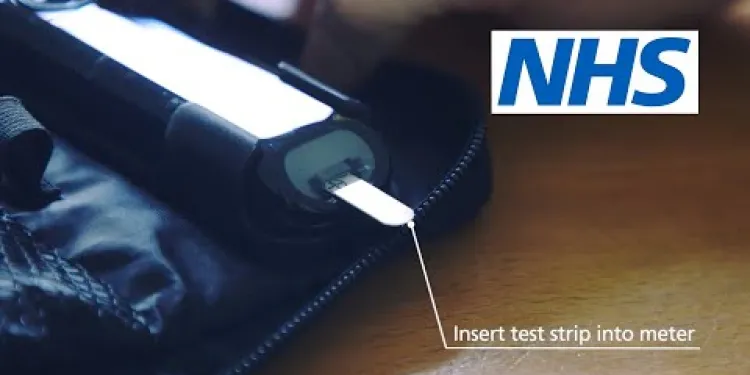
Diabetes: How to check your blood glucose level | NHS
Relevance: 6%
-

Symptoms of coeliac disease
Relevance: 6%
-

What are the benefits of early detection of type 1 diabetes?
Relevance: 6%
-
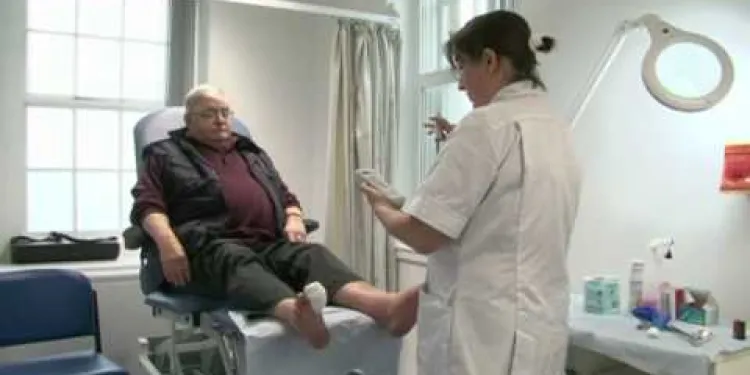
Diabetes Care - Preventing Amputations
Relevance: 5%
-

What are the symptoms of Type 2 Diabetes?
Relevance: 5%
-

Is it possible to have a heart attack without chest pain?
Relevance: 5%
-

How is motor neurone disease diagnosed?
Relevance: 5%
-

What happens if Lyme disease is left untreated?
Relevance: 3%
-

Coeliac disease
Relevance: 3%
-

How to manage type 2 diabetes
Relevance: 3%
-
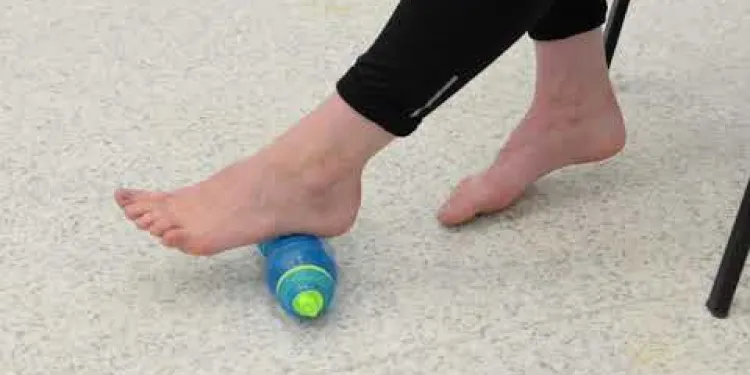
Foot Pain
Relevance: 3%
-

Can stress affect my Type 2 Diabetes?
Relevance: 3%
-

What are common symptoms of Lyme disease?
Relevance: 3%
-

Are there any complications associated with shingles?
Relevance: 3%
-

What is type 1 diabetes?
Relevance: 2%
-

What is type 1 diabetes?
Relevance: 2%
-

What is the difference between type 1 and type 2 diabetes?
Relevance: 2%
-
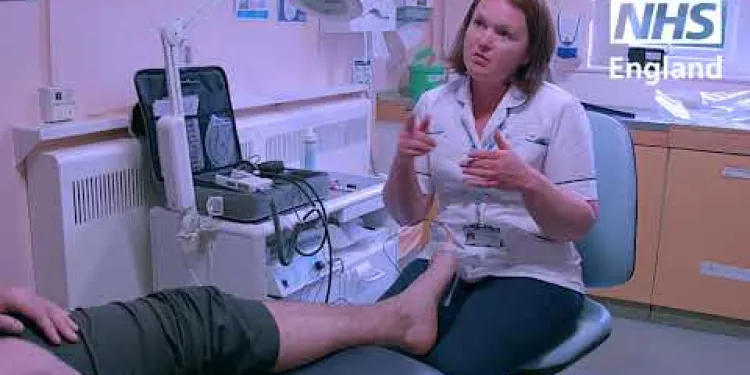
Improving outcomes for people with diabetes
Relevance: 2%
What is Vasculitic Neuropathy?
Introduction to Vasculitic Neuropathy
Vasculitic neuropathy is a condition that occurs when the blood vessels supplying nerves become inflamed, leading to nerve damage. This inflammation can cause a range of neurological symptoms, including pain, weakness, and loss of function. Vasculitic neuropathy is a serious condition that requires prompt diagnosis and treatment to prevent permanent nerve damage.Causes of Vasculitic Neuropathy
The underlying cause of vasculitic neuropathy is inflammation of the blood vessels, known as vasculitis. Various forms of vasculitis can lead to this condition, including polyarteritis nodosa, granulomatosis with polyangiitis, and Churg-Strauss syndrome. Sometimes, vasculitic neuropathy can be part of a systemic autoimmune disorder, such as rheumatoid arthritis or lupus.Symptoms and Diagnosis
The symptoms of vasculitic neuropathy can vary widely depending on the nerves affected. Common symptoms include numbness, tingling, burning pain, muscle weakness, and difficulty with coordination. In severe cases, there may be a noticeable loss of muscle mass or severe pain that disrupts daily activities. Diagnosis often involves a combination of clinical evaluation, blood tests, nerve conduction studies, and sometimes a nerve biopsy to confirm the presence of vasculitis.Treatment Options
Treating vasculitic neuropathy typically involves managing the underlying vasculitis and reducing inflammation. Options may include corticosteroids, immunosuppressive drugs, and other medications to control the immune response. Pain management strategies and physical therapy can also be crucial in helping patients manage symptoms and improve their quality of life.Living with Vasculitic Neuropathy
Living with vasculitic neuropathy can be challenging, but with the right medical intervention and lifestyle adjustments, individuals can manage their symptoms effectively. Regular follow-ups with healthcare providers, adherence to prescribed treatments, and a healthy lifestyle can help mitigate the impact of the condition. In the United Kingdom, resources such as the NHS and various support groups can provide valuable information and support to those affected.Conclusion
Vasculitic neuropathy is a complex condition caused by inflammation of blood vessels that affects nerve function. Prompt diagnosis and effective management are crucial in preventing long-term damage and improving patient outcomes. If you suspect you have symptoms of vasculitic neuropathy, consult a healthcare provider for an accurate diagnosis and appropriate treatment plan.What is Vasculitic Neuropathy?
Introduction to Vasculitic Neuropathy
Vasculitic neuropathy is when small tubes in your body, called blood vessels, get swollen. These tubes bring food and oxygen to your nerves. When they are swollen, nerves can get hurt. This can cause pain, weakness, and other problems. It is important to see a doctor quickly to stop nerve damage.Causes of Vasculitic Neuropathy
Vasculitic neuropathy happens because of swollen blood vessels. This is called vasculitis. Different types of vasculitis can cause nerve problems, like polyarteritis nodosa, granulomatosis with polyangiitis, and Churg-Strauss syndrome. Sometimes, it happens with other health problems, like rheumatoid arthritis or lupus.Symptoms and Diagnosis
Signs of vasculitic neuropathy can be different for each person. Common signs are numbness, tingling, pain that feels like burning, weak muscles, and trouble moving. Bad cases might cause muscles to get smaller or very bad pain. Doctors use tests like blood tests and nerve tests to find out if someone has this problem.Treatment Options
To treat vasculitic neuropathy, it's important to stop the swelling of blood vessels. Doctors might give medicines like steroids or drugs that calm down the immune system. Pain relief and exercises can help people feel better and stay healthy.Living with Vasculitic Neuropathy
Living with this condition can be hard. But with help from doctors and changes in lifestyle, people can manage it. Regular doctor visits and taking medicines can help control it. Staying healthy with good food and exercise is important. In the UK, the NHS and support groups can also help people cope.Conclusion
Vasculitic neuropathy is when swollen blood vessels hurt nerves. It is important to find out quickly if this is happening and get the right treatment. If you think you have symptoms, talk to a doctor who can help.Frequently Asked Questions
What is vasculitic neuropathy?
Vasculitic neuropathy is a type of nerve damage caused by inflammation of blood vessels, which can restrict blood flow and lead to issues with the affected nerves.
What causes vasculitic neuropathy?
Various autoimmune diseases such as polyarteritis nodosa, rheumatoid arthritis, and lupus can cause vasculitic neuropathy, as these conditions involve inflammation of blood vessels.
What are the symptoms of vasculitic neuropathy?
Symptoms can include pain, muscle weakness, numbness, and tingling in the affected areas, often starting in the hands and feet and potentially progressing to other parts of the body.
How is vasculitic neuropathy diagnosed?
Diagnosis typically involves a combination of clinical evaluation, blood tests, nerve conduction studies, and sometimes nerve or muscle biopsies to identify inflammation and damage.
What treatments are available for vasculitic neuropathy?
Treatment often includes corticosteroids and immunosuppressive medications to reduce inflammation, as well as pain management strategies. Physical therapy may also help to preserve muscle strength and function.
Can vasculitic neuropathy be cured?
While there is no definitive cure, early and effective treatment can manage symptoms and potentially lead to remission. Continuous monitoring and adjustment of treatment are often necessary.
Who is most at risk of developing vasculitic neuropathy?
It can affect individuals of any age but is more common in those with a history of autoimmune diseases. Both genetic and environmental factors may influence risk.
Is vasculitic neuropathy a common condition?
Vasculitic neuropathy is relatively rare compared to other types of neuropathies. However, for those with underlying autoimmune conditions, the risk may be higher.
What lifestyle changes can help manage vasculitic neuropathy?
Maintaining a healthy diet, regular physical activity, avoiding smoking, and managing stress can help support overall health and potentially alleviate some symptoms of vasculitic neuropathy.
How does vasculitic neuropathy affect daily life?
It can significantly impact daily activities due to pain and muscle weakness, but with proper management and support, many individuals can maintain a good quality of life.
Are there support groups or resources for people with vasculitic neuropathy in the UK?
Yes, there are several organisations such as Vasculitis UK, which provide support, information, and resources for individuals affected by vasculitic conditions.
What is the prognosis for someone with vasculitic neuropathy?
The prognosis varies depending on the severity and response to treatment. Early diagnosis and treatment can significantly improve outcomes.
Can children develop vasculitic neuropathy?
Although rare, children can develop vasculitic neuropathy, especially if they have an underlying autoimmune condition. Paediatric care would involve a specialised approach to diagnosis and treatment.
Can vasculitic neuropathy lead to other health complications?
If left untreated, vasculitic neuropathy can lead to severe nerve damage, potentially resulting in permanent disability, and it can also impact other organs depending on the extent of blood vessel involvement.
What is the role of a neurologist in treating vasculitic neuropathy?
A neurologist plays a crucial role in diagnosing and managing vasculitic neuropathy, including developing a treatment plan, monitoring progress, and adjusting therapies as needed.
What is vasculitic neuropathy?
Vasculitic neuropathy is when the blood vessels that go to the nerves are inflamed. This can hurt the nerves.
When the nerves are hurt, you might feel weak, numb, or in pain.
Tools that can help:
- Use pictures to help understand.
- Ask someone you trust to explain it to you.
- Use a dictionary to look up words you don’t know.
Vasculitic neuropathy happens when blood vessels get swollen. This swelling can stop blood from flowing properly. When this happens, nerves might not work well and can be damaged.
What makes nerves sick in vasculitis?
Some illnesses can make the body's defense system attack itself. These include polyarteritis nodosa, rheumatoid arthritis, and lupus. These illnesses can cause blood vessels to get swollen and sick. This makes the nerves hurt, which is called vasculitic neuropathy.
If you need help reading this, try using a ruler or a finger to follow the words. Taking breaks and reading slowly can also help. If something is hard to understand, ask someone to explain it to you.
What are the signs of vasculitic neuropathy?
Vasculitic neuropathy is when blood vessels are not healthy, and this hurts the nerves. Here are some signs to look for:
- Your feet or hands might feel tingly or numb.
- Sometimes you might have pain in your hands or feet.
- You might feel weak and have trouble moving.
- Your muscles could get smaller and weaker.
If you think you have these signs, it's important to talk to a doctor. A doctor can help you feel better.
If reading is hard, you can:
- Ask someone to read this with you.
- Use an app to read the text out loud.
- Stop and take breaks if you need to think about the information.
When you have this problem, you might feel pain. Your muscles might feel weak. You could also feel numbness or tingling. This often starts in your hands and feet. It can sometimes spread to other parts of your body.
If you have trouble reading, you can ask someone for help. You can also use tools that read the words out loud or make the text bigger.
How do doctors find out if someone has vasculitic neuropathy?
Doctors have special ways to find out if a person has vasculitic neuropathy. Here are some ways they check:
- Talk to the person: The doctor will ask about feelings, like tingling or pain.
- Look at the body: The doctor will check for swelling or red skin.
- Blood test: This helps the doctor see if there is inflammation in the blood.
- Nerve test: This checks if the nerves work properly.
- Tissue test: Tiny piece of skin or muscle is looked at under a microscope.
If you think you have this problem, it is important to talk to a doctor. Friends or family can help you too.
Tools to support you:
- Ask a friend: Someone you trust can go with you to the doctor.
- Note-taking: Write down questions before visiting a doctor.
- Apps: Use apps that help you remember doctor visits.
To find out what is wrong, doctors do a few things. They talk to you and check your body. They might use blood tests to look at what is happening inside. They can also do special tests to see how your nerves are working. Sometimes, they take a tiny piece of nerve or muscle to look at it more closely. This helps them see if there is swelling or damage.
What treatments can help with vasculitic neuropathy?
When you are feeling sick, doctors might give you special medicine. This medicine helps your body feel better and stops it from hurting. Some people also need help through exercises called physical therapy. These exercises help keep your muscles strong and working well.
Can vasculitic neuropathy be fixed?
Vasculitic neuropathy is when blood vessels hurt the nerves.
Doctors can help treat it, but it might not go away completely.
Treatment can make you feel better and stop more damage.
Talk to your doctor about the best way to help you feel better.
Using simple words and talking about how you feel can help when you talk to your doctor.
There is no sure cure, but starting treatment early can help manage symptoms. Sometimes, the symptoms might even go away for a while. It is important to keep checking how the treatment is working and make changes if needed.
Who is most likely to get vasculitic neuropathy?
Some people are more likely to get vasculitic neuropathy. These include:
- Older adults, usually over 50 years old
- People with certain diseases like lupus or rheumatoid arthritis
- People who have infections like hepatitis
Tools that can help:
- Talking to a doctor
- Learning about staying healthy
- Using clear and easy information
This can happen to anyone, no matter how old they are. But it happens more often to people who have had other illnesses where the body attacks itself. Things like your family history and the world around you can make it more likely.
Is vasculitic neuropathy a common condition?
Does vasculitic neuropathy happen often?
Vasculitic neuropathy is a condition that affects the nerves. It is rare, meaning it does not happen to many people.
For more help understanding this, you can:
- Ask a doctor to explain it in simple words.
- Look at pictures or diagrams about it.
- Use online tools that read text out loud.
Vasculitic neuropathy is not very common. It happens less often than other nerve problems. People with some immune system diseases might get it more often.
How can I change my life to help with vasculitic neuropathy?
Here are some easy things you can do to feel better:
- Eat healthy food: Try to eat lots of fruits, vegetables, and whole grains.
- Exercise regularly: Do gentle exercises like walking or stretching.
- Rest well: Make sure you get enough sleep each night.
- Avoid stress: Try to do things that help you relax, like reading or listening to music.
Ask your doctor or nurse for other tips that can help you feel better. You can also use apps or tools that remind you to eat healthy or exercise.
Eating healthy food, exercising, not smoking, and staying calm can help you feel better and may help with some nerve problems.
How does vasculitic neuropathy affect daily life?
Vasculitic neuropathy can make your nerves sick. This might cause pain, tingles, or make you feel weak. These feelings can make it hard to do things every day, like walking, holding things, or playing.
Some ways to make it easier are:
- Ask a doctor for medicine to help with pain.
- Use tools like special shoes or grips to hold things.
- Rest when you feel tired.
- Take breaks when doing things to not get too tired.
It can make everyday things hard because it can hurt and make muscles weak. But with the right help and care, many people can still have a good life.
Can people with vasculitic neuropathy in the UK find help or groups?
Yes, there are ways to get help. Here are some ideas:
- Join a support group. These are people who talk and help each other.
- Talk to a doctor. Doctors can give you advice and support.
- Look online for websites with information and help.
- Use special programs or apps that help people read or understand better.
Yes, there are groups like Vasculitis UK. They help people with vasculitis. They give support, information, and resources.
What will happen to someone with vasculitic neuropathy?
Vasculitic neuropathy is a sickness that hurts the nerves. It can make fingers, toes, and legs feel tingly, numb, or weak.
How someone gets better depends on lots of things. Doctors can give medicine to help. Some people get all better, but others might still have some problems.
It helps to visit the doctor often. A doctor can check how things are going and give more help if needed. Family and friends can also support someone with vasculitic neuropathy.
The outlook depends on how bad the problem is and how well the treatment works. Finding the problem early and getting treatment can make things much better.
Can kids get sick with vasculitic neuropathy?
Sometimes, children can have a health problem called vasculitic neuropathy.
Vasculitic neuropathy is when small blood tubes in the body get hurt.
This can make nerves feel weak or tingly.
If a child is feeling strange tingles or weakness, it is important to talk to a doctor.
A doctor can help and tell you what to do next.
Children do not often get vasculitic neuropathy. This is a problem with the nerves. It can happen if they have a disease where the immune system attacks the body. Doctors need special ways to find out if a child has this problem and to help them feel better.
Can nerve problems from inflamed blood vessels cause other health issues?
Nerve problems can happen when blood vessels are swollen. This can cause other health problems too. It's important to talk to a doctor about it. They can help and give advice. Using pictures or diagrams might make it easier to understand.
If you don't treat vasculitic neuropathy, it can hurt your nerves a lot. This can cause long-lasting problems. It can also affect other parts of the body, depending on how many blood vessels are involved.
What does a neurologist do to help with vasculitic neuropathy?
A neurologist is a doctor who helps with problems in the brain and nerves.
Vasculitic neuropathy is a problem with the nerves. It happens when little blood tubes swell up and hurt the nerves.
The neurologist checks how your nerves are working. They figure out if you have vasculitic neuropathy. They then find the best way to help you feel better. This might include medicine to help with swelling and pain. They might also work with other doctors to make sure you get the best care.
If reading is hard, you could ask someone to help you read. Drawing or using simple words can also make things easier to understand.
A doctor called a neurologist helps when your nerves are sick. They figure out what is wrong and make a plan to help you get better. If needed, they change how they are helping you to make sure you feel good.
Useful Links
This website offers general information and is not a substitute for professional advice.
Always seek guidance from qualified professionals.
If you have any medical concerns or need urgent help, contact a healthcare professional or emergency services immediately.
Some of this content was generated with AI assistance. We’ve done our best to keep it accurate, helpful, and human-friendly.
- Ergsy carfully checks the information in the videos we provide here.
- Videos shown by Youtube after a video has completed, have NOT been reviewed by ERGSY.
- To view, click the arrow in centre of video.
- Most of the videos you find here will have subtitles and/or closed captions available.
- You may need to turn these on, and choose your preferred language.
- Go to the video you'd like to watch.
- If closed captions (CC) are available, settings will be visible on the bottom right of the video player.
- To turn on Captions, click settings .
- To turn off Captions, click settings again.
More Items From Ergsy search
-

What is vasculitic neuropathy?
Relevance: 100%
-

What is a neuropathy?
Relevance: 48%
-

Exercise in patients with a neuropathy
Relevance: 43%
-

What complications are associated with Type 2 Diabetes?
Relevance: 15%
-

Diabetic Foot Conditions Podiatrist
Relevance: 13%
-

Is there a risk of permanent nerve damage?
Relevance: 11%
-

What are the side effects of bowel cancer treatment?
Relevance: 11%
-

Are heart attack symptoms different for people with diabetes?
Relevance: 8%
-

Type 2 diabetes - common signs and symptoms UHL NHS Trust
Relevance: 6%
-

Diabetes: How to check your blood glucose level | NHS
Relevance: 6%
-

Symptoms of coeliac disease
Relevance: 6%
-

What are the benefits of early detection of type 1 diabetes?
Relevance: 6%
-

Diabetes Care - Preventing Amputations
Relevance: 5%
-

What are the symptoms of Type 2 Diabetes?
Relevance: 5%
-

Is it possible to have a heart attack without chest pain?
Relevance: 5%
-

How is motor neurone disease diagnosed?
Relevance: 5%
-

What happens if Lyme disease is left untreated?
Relevance: 3%
-

Coeliac disease
Relevance: 3%
-

How to manage type 2 diabetes
Relevance: 3%
-

Foot Pain
Relevance: 3%
-

Can stress affect my Type 2 Diabetes?
Relevance: 3%
-

What are common symptoms of Lyme disease?
Relevance: 3%
-

Are there any complications associated with shingles?
Relevance: 3%
-

What is type 1 diabetes?
Relevance: 2%
-

What is type 1 diabetes?
Relevance: 2%
-

What is the difference between type 1 and type 2 diabetes?
Relevance: 2%
-

Improving outcomes for people with diabetes
Relevance: 2%


